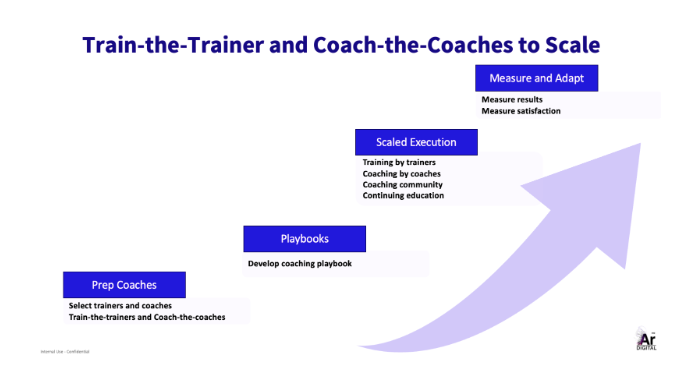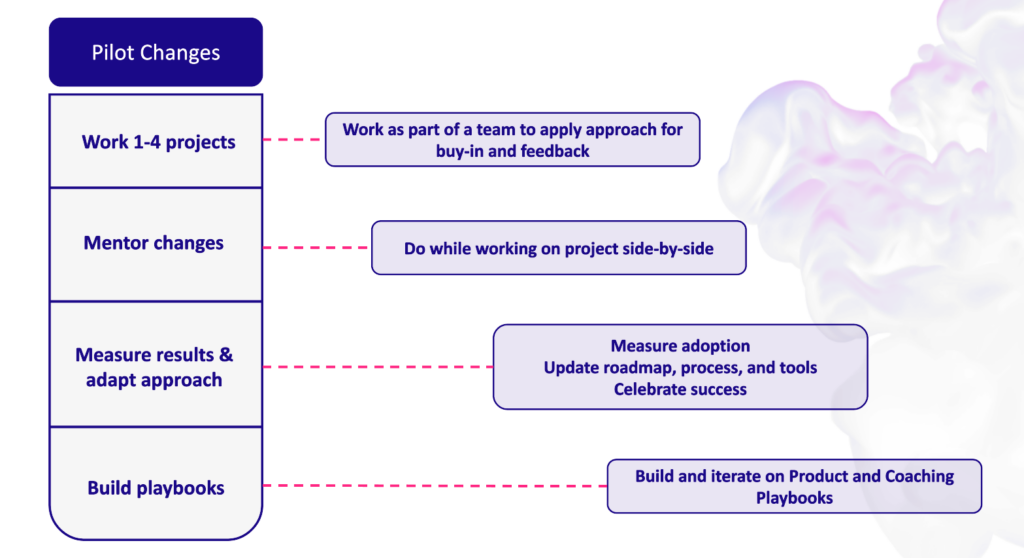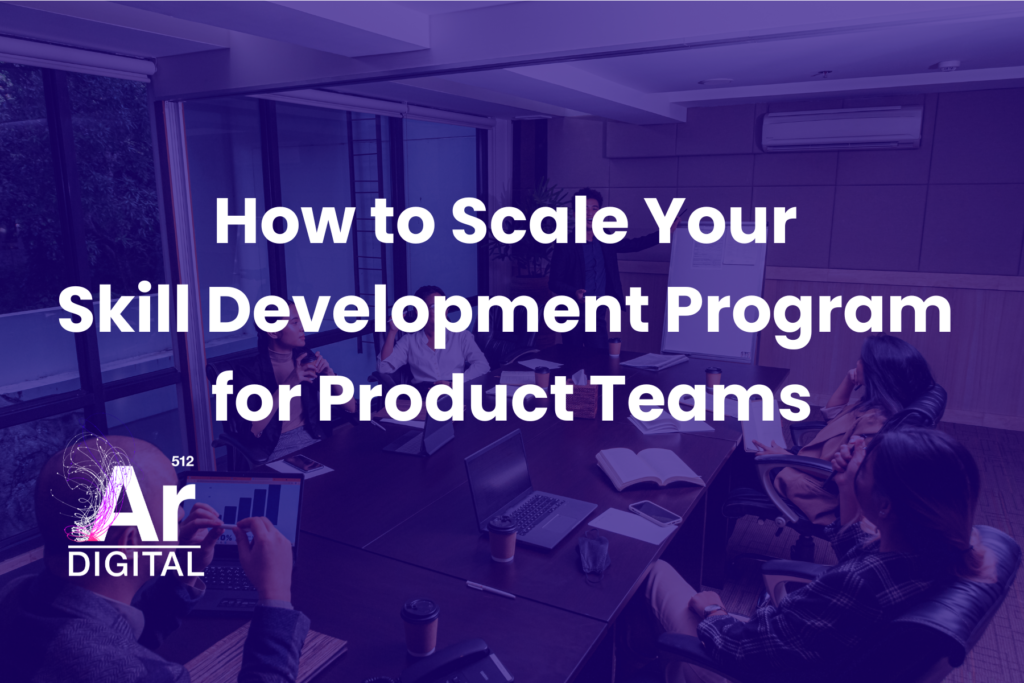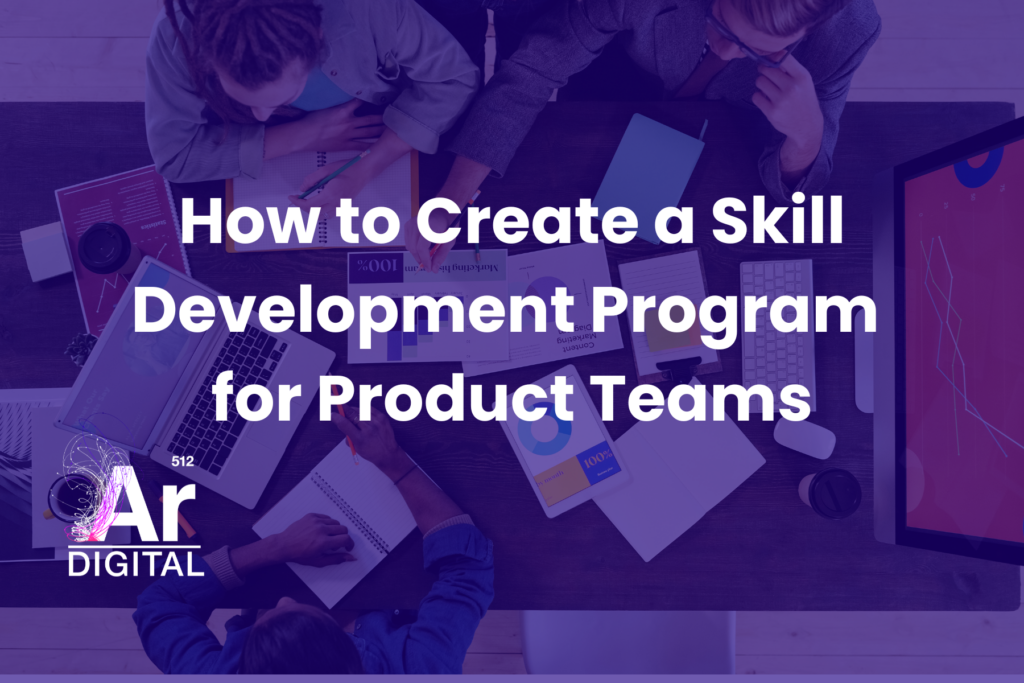As product management teams grow, especially in large organizations, scaling skill development becomes increasingly challenging. Product managers play a vital role in building software that meets business needs and drives innovation. However, without structured training and support, teams can struggle with high turnover, skill gaps, and misaligned outcomes.
To address these challenges, product management leaders need a repeatable approach to develop their team’s skills. This guide explores a coaching-based model to scale product management expertise within a large organization—without relying solely on external consultants or stretching your budget.
Why Skill Development is Critical for Product Management Teams
Skill development isn’t just a nice-to-have; it’s essential for retaining top talent, improving product outcomes, and ensuring effective team execution. Here’s what can happen without it:
- Increased turnover: Employees feel stagnant and unchallenged, leading to high attrition.
- Skill gaps: A lack of core competencies, such as business analysis and technical acumen, results in software that doesn’t fully solve business problems. (Download our product skills matrix for coaches to adapt and use to give feedback to the people being coached)
- Budget constraints: Hiring external consultants to do all of your product management or to train a team of 2,000 or more isn’t realistic.
Scaling skill development helps address these issues while keeping costs manageable and improving retention.
Why Coaching Trumps Traditional Training
While training provides a consistent baseline of knowledge, it often isn’t enough to make a lasting impact on behavior. Coaching, on the other hand, focuses on applying skills in real-time, which helps ensure that concepts don’t fade over time.
At ArgonDigital, we believe that coaching your teams to use their skills is more impactful than just teaching new skills. Practicing on real projects creates an accelerated learning environment. Whether you work with us or apply this approach internally, it’s vital to integrate skills into daily routines to build lasting habits.
ArgonDigital’s Coaching Approach helps teams transition from training to daily application by incorporating skillsets like requirements visualization and advanced analysis techniques. In our coaching model, we emphasize learning by doing. Just like in drivers’ education, we start in the driver’s seat and gradually move to the passenger seat, and finally, the back seat, allowing the team to take over progressively while we provide guidance.
The ArgonDigital Approach: Train-the-Trainers and Coach-the-Coaches
ArgonDigital offers a scalable solution through a coaching-based model. This approach empowers internal staff to lead skill development, which allows for organic growth and knowledge transfer. Here’s how it works:
Train-the-Trainer: Instead of training everyone, select a group of team members who will then train others. This creates a ripple effect, allowing skills to spread through the organization.
Coach-the-Coaches: After establishing the initial group of trainers, focus on developing coaches who can further the process. Coaches guide the trainers and provide ongoing support to ensure consistent skill growth across the team.
By empowering internal coaches and trainers, you can scale skill development efficiently, reducing the need for constant external assistance.

Implementing the Coaching Model
Scaling skill development within your team involves a few key steps:
Identify and Train Coaches
Start by selecting a small group of team members with both the necessary product management skills and a desire to mentor others. This core group will become your initial coaches, setting the tone for the program.Develop Playbooks
Create standardized playbooks for coaching and training. These playbooks should detail the methodologies and skills that need to be taught, making the process repeatable and ensuring consistent training for new hires and existing team members.Execute at Scale
With playbooks in place, your coaches can start training others. Over time, this approach creates a cycle where trained coaches continue to support new trainers, enabling the program to scale without overwhelming resources.Measure and Adapt
To ensure effectiveness, establish metrics for tracking progress, such as training completion rates, employee satisfaction, and improvement in product outcomes. Regularly review these metrics and adapt your coaching strategies to refine and enhance the program.

The Coaching Model in Action: ArgonDigital’s Approach
Our coaching model is designed to be immersive, enabling team members to quickly integrate skills into their daily work. Here’s how we do it, step-by-step:
Phase 1 – Observation: ArgonDigital takes the lead, with the CS in a learning role, observing how we perform tasks on their projects. We demonstrate essential skills like requirements visualization and advanced analysis.
Phase 2 – Guided Practice: The CS team begins to lead activities on their projects, with ArgonDigital providing feedback and guidance. This is where the team starts to build confidence and apply skills in a supported environment.
Phase 3 – Independent Practice: ArgonDigital coaches shift to an advisory role, checking in occasionally, but allowing the CS to lead. This helps reinforce skills as they become embedded in daily routines.
Phase 4 – Full Ownership: The team operates independently, with ArgonDigital stepping back entirely. The skills have become a natural part of their workflow, and they are fully prepared to coach others.
For larger teams we recommend working with a few top-talent CSs who can then serve as embedded coaches, further scaling skill development within the organization. This model provides flexibility, and we can adjust timelines to suit budget needs, with typical engagements lasting around 12 weeks and involving 20 hours per week of dedicated coaching time.
Overcoming Common Challenges
Scaling skill development isn’t without obstacles. Here are some potential challenges and tips for addressing them:
Lack of buy-in: Not everyone will immediately see the value of dedicating time to coaching or training. Demonstrate the long-term benefits, such as improved retention and enhanced team effectiveness.
Egos and resistance: Some team members may feel threatened or believe they’re already highly skilled. Fostering a culture of growth and showing the value of coaching for everyone’s development is key.
Coaching aptitude: Not everyone has the temperament or desire to be a coach. Identifying the right people with both skills and the motivation to mentor is essential.
Time constraints: Product managers often juggle many responsibilities. Effective time management and prioritization can help integrate coaching into their schedules.
Organizational barriers: Internal politics or rigid structures can impede feedback loops. Advocating for an environment that values growth and feedback is crucial for success.
Conclusion: Building a Scalable System for Growth
Scaling product management skills is essential for large teams, especially in organizations where relying solely on external consultants isn’t feasible. A coaching-based model, emphasizing training trainers and coaching coaches, offers a sustainable, repeatable, and cost-effective approach to skill development. It’s about creating a culture where new skills are put into practice immediately, and where coaching helps reinforce these skills on real projects.
By incorporating structured playbooks, regularly measuring progress, and making continuous adjustments, you can create a program that not only enhances skill development but also boosts morale, retention, and product outcomes.
Whether you partner with ArgonDigital or use this model internally, remember that skills become habits only when practiced. Ready to transform your team’s growth strategy? Consider adopting a coaching-based approach to help your team not only learn new skills but also integrate them seamlessly into their daily work.
Before you Scale you Need to Create a Skill Development Program
If you don’t have a program in place, check out this related blog to learn best practices for creating a skill development program.
Use our Product Owner Skills Matrix Template to give feedback to people being coached.





